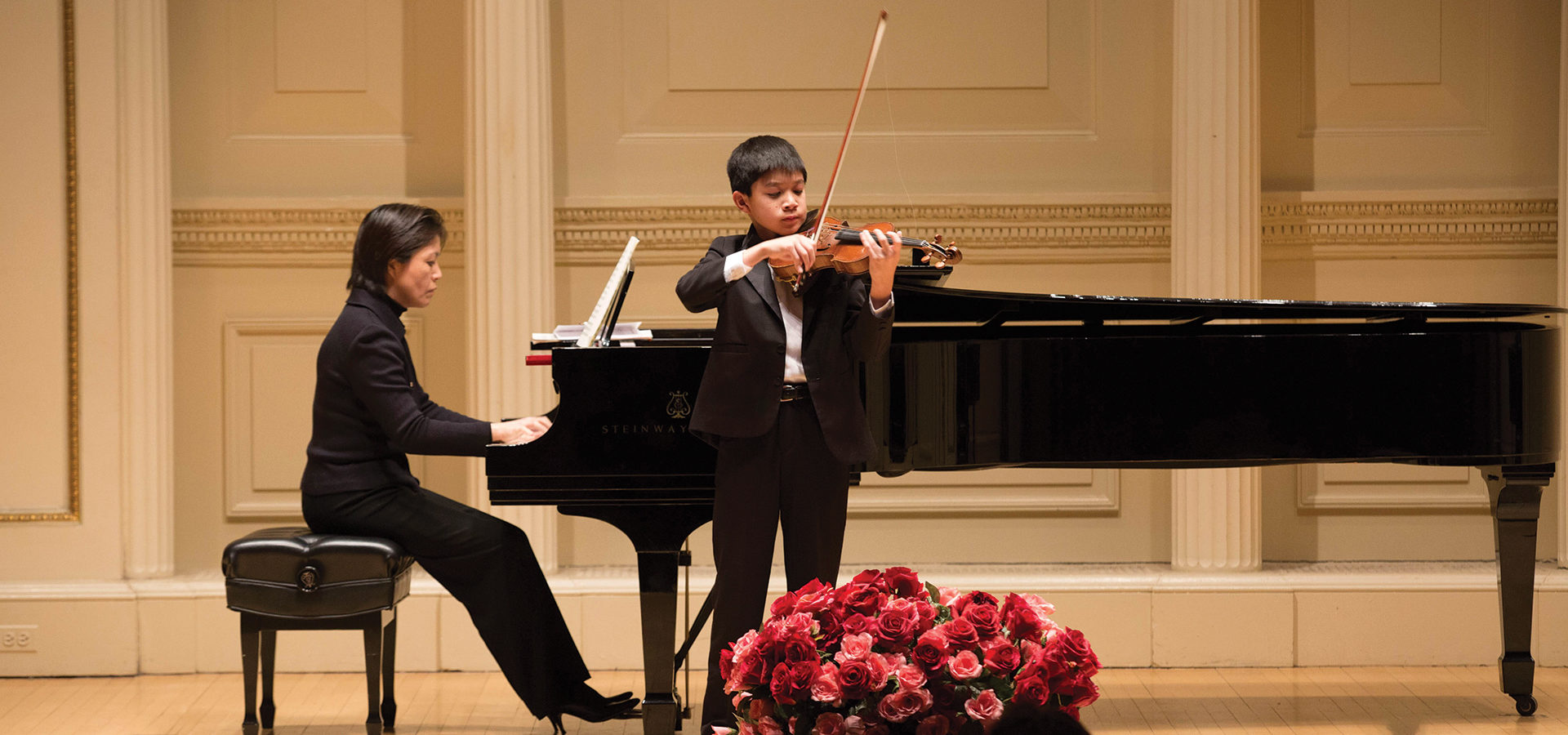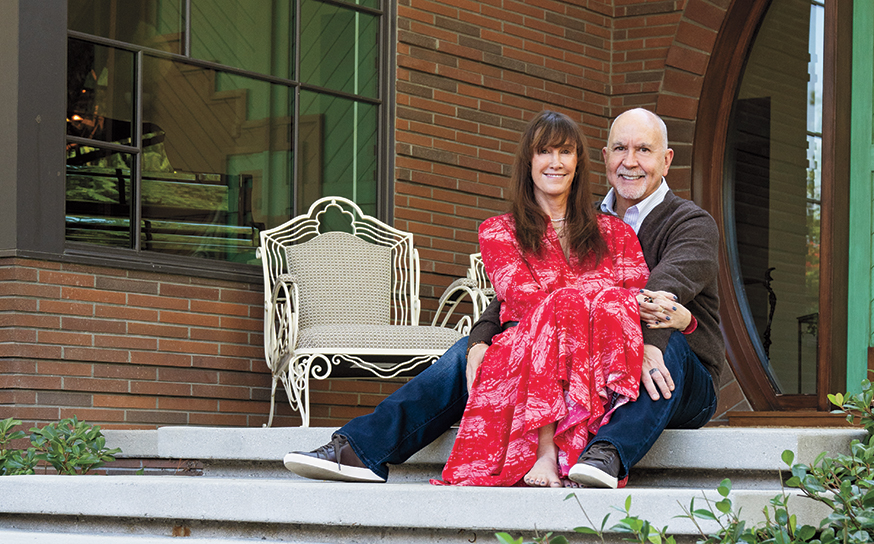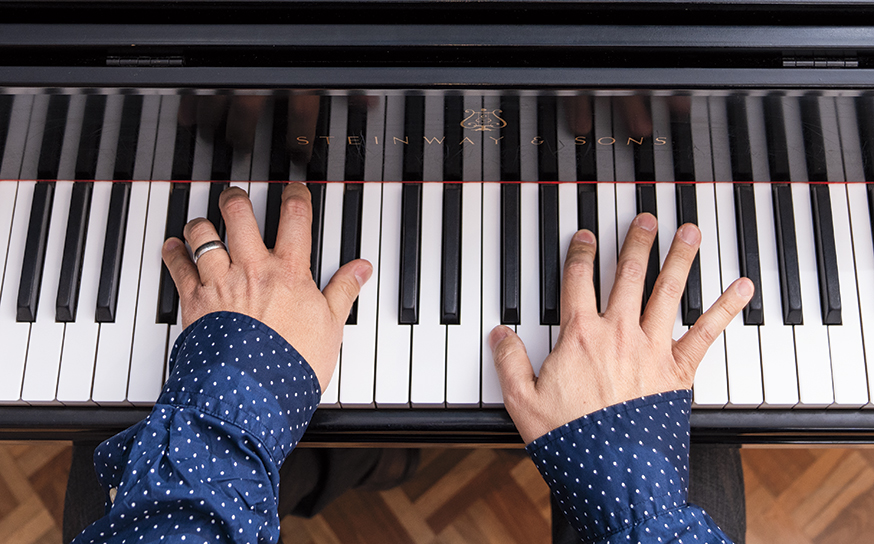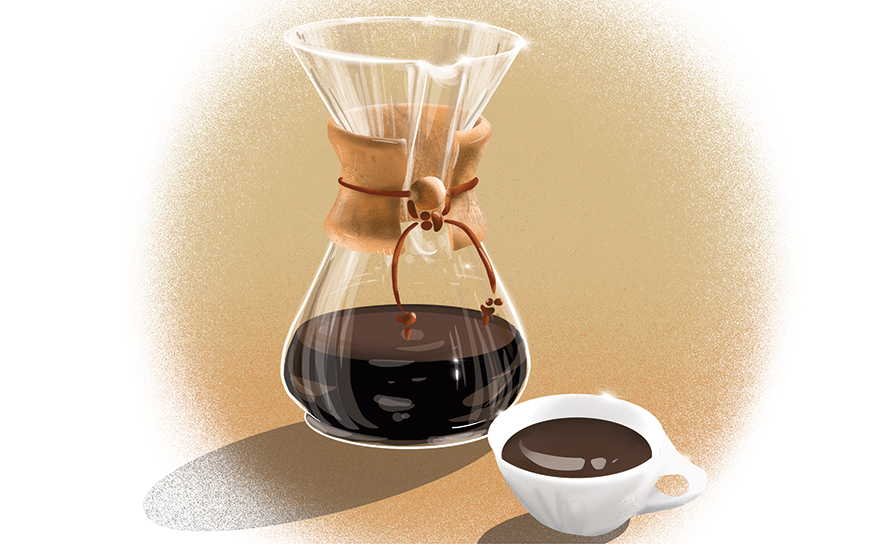Meet Violinist & Concert Master Matthew Chang
Teen talent.
-
CategoryPeople
-
Written byAnne M. Russell
-
Photographed byStephanie Girard
-
Matthew at age 11 playing in Weill Recital Hall at Carnegie Hall as a first-place competition winner. He is accompanied by his mom, Margaret Lee.
Above
Playing an instrument with a full orchestra for a packed house takes nerve—not to mention having the added pressure of being concertmaster. But it is when Matthew Chang assumes those roles that he truly feels alive. “When I play the violin and lead the string section, I feel transported by the soaring sound of the orchestra, a feeling of exhilaration as I immerse myself fully in music,” he says.
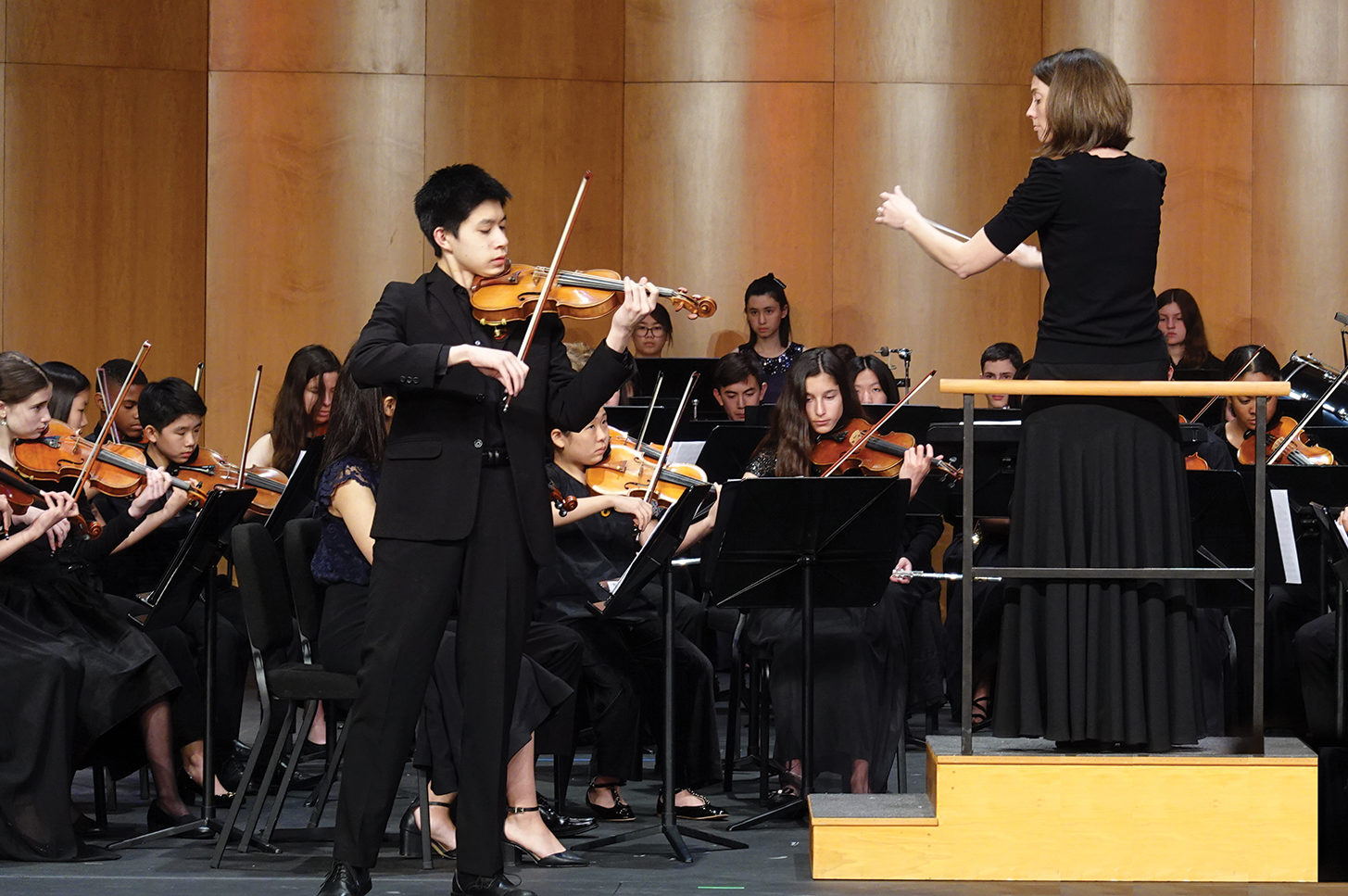
In 2020, as featured soloist for Harvard-Westlake Middle School Symphony, with Emily Reola conducting the orchestra.
When asked if he considers himself a prodigy, Matthew Chang shyly demurs, pointing out that there are hundreds of YouTube videos featuring 3- and 4-year-old virtuosos.
That may be true, but one can’t help but be impressed by the Harvard-Westlake School senior’s astonishing talent on the violin. “He’s extraordinary,” says Mark Hilt, music theory teacher and director of the upper school symphony.
Matthew serves as concertmaster and lead violinist for the 52-student orchestra, and Mark says there wasn’t even a question of whom the position would go to: “It’s given to the person with the greatest technical prowess, and that’s Matthew without a question.”
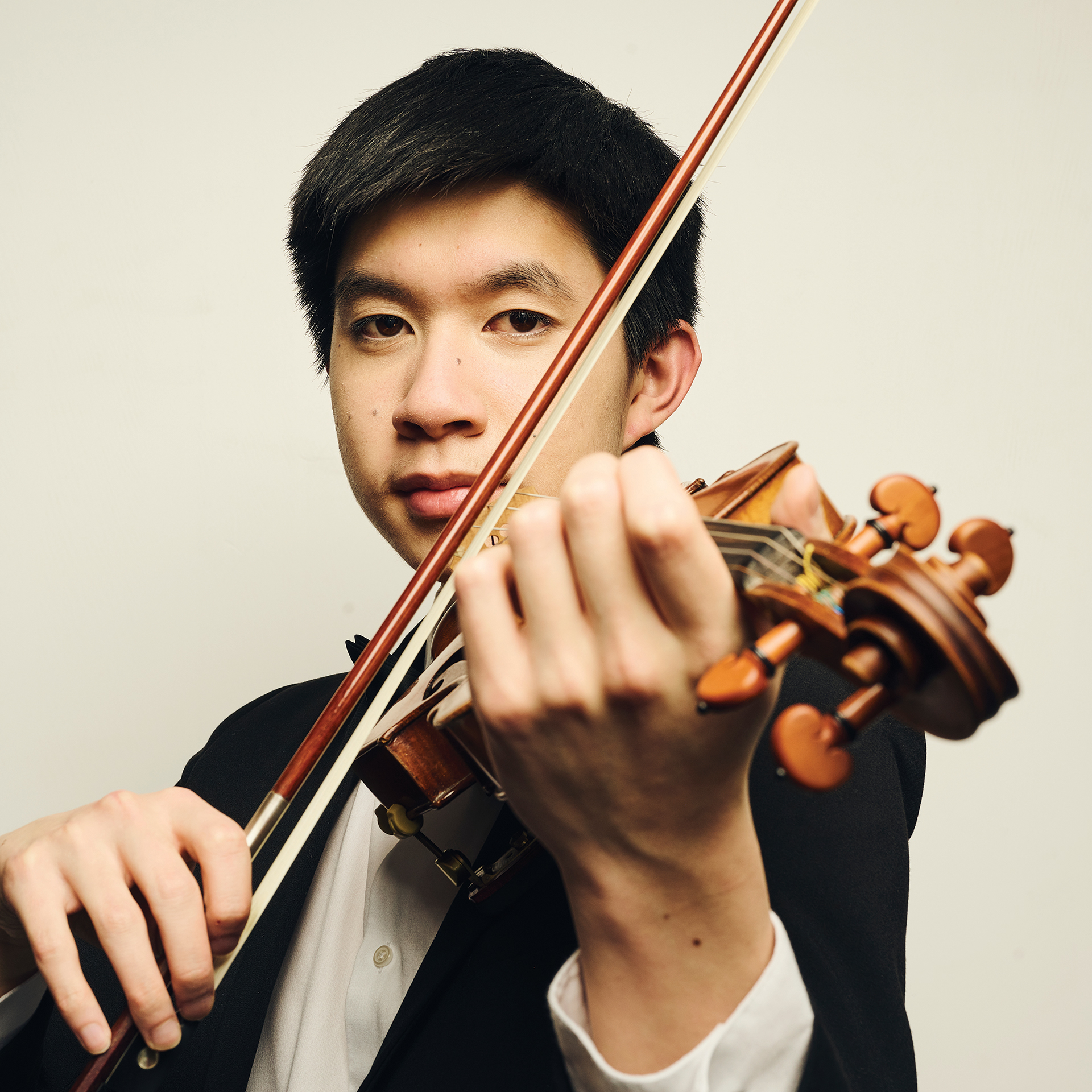
Matthew, who also performs regularly with the Palos Verdes Symphony—he is concertmaster there, too—began his musical journey playing the piano at age 4. He moved on to the violin at 6, partly due to the influence of his older sister, Megan, also a skilled violinist. He showed talent early; as a student at Curtis School he was invited to join its orchestra in 1st grade, two years earlier than normally allowed.
Harvard-Westlake 7th grade dean and middle school symphony conductor Emily Reola first met Matthew when he was a grade schooler attending his sister’s concerts with his parents. “He was always quiet, shy, and sweet,” she says, but he took a huge leap forward in 9th grade when he was tapped to perform Paganini’s intensely emotional and technically challenging Violin Concerto No. 1 in D major with the school orchestra. “It was a very special moment,” Emily recalls. “To see him come alive and to hear what’s inside of him. There’s no hiding in that concerto.”
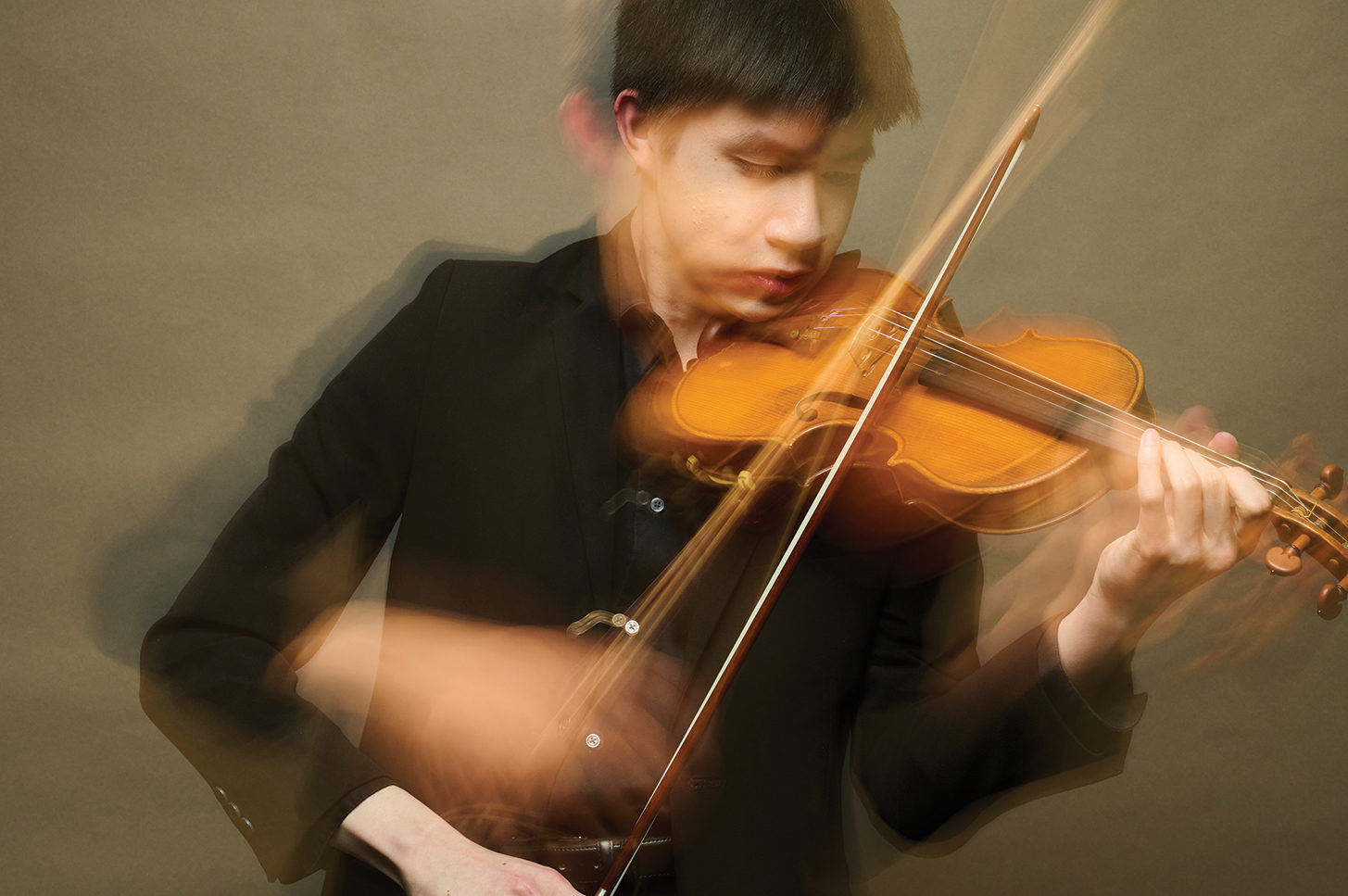
“I feel transported by the soaring sound of the orchestra, a feeling of exhilaration.”
Matthew says he practices the violin about an hour a day and with that, college applications, and his focus on math and science academics, other hobbies and sports have largely fallen by the wayside. In addition to his regular roles with the two local orchestras, he performs four times a year with the American Youth Symphony. As winner of dozens of competitions, he has soloed at Carnegie Hall and already this year, he won in the Classical Music/Violin category at the 2023 YoungArts national competition.
Mark says that he believes that “for Matthew, music is a language that allows him more freedom of expression than spoken language.” Matthew is indeed focused on the psychological aspect of music. “At the end of day,” Matthew says, “it’s about being able to bring the emotion and joy out of the music.”
Although the teen hasn’t completely ruled out following in his parents’ footsteps in medicine—his father is cardiologist Donald S. Chang and his mother is radiologist Margaret Lee—the 18-year-0ld is more interested at this point in exploring the complex effect of music on the mind—how it influences mood, emotion, and memory. He hopes to put his science and math skills to work in cognitive science studies of music-based interventions.
Join the Valley Community






